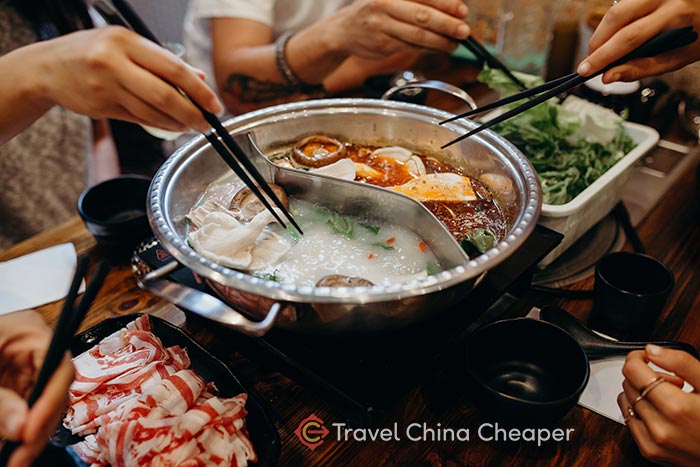1. Research before you goTip: Know what each region is famous for. Suzhou is one example. It is famous for its silk. Jingdezhen, for its porcelain, and Tibet because of its thangkas.Pro: This tool can help you focus on the shopping goal and reduces the amount of time you waste.Con: You should be familiar with the highlights of the region.
2. Buy local to guarantee authenticityPurchase directly from the source to ensure authenticity and quality.Pro: Reduces the risks of copyright goods, and helps local artisans.Con: Requires travel into rural regions or lesser-known tourist destinations.
3. Visit the Artisans and WorkshopsPick small workshops or artisan hubs over generic shops.Pro: Gives you a greater understanding of the craft and ensures that you are buying directly from creators.Cons: The cost of handmade products is higher and it isn't easy to negotiate.
4. Understand Cultural SignificanceGet to know the culture of your products like cloisonnes, jade sculptures, or calligraphy.Pros: You will be able to appreciate your purchases more and assign them an even deeper meaning.Con: It might take a while to fully understand cultural differences.
5. Be sure to check the quality by taking care.Make sure that the items you purchase, like tea, ceramics, or embroidered items, are of high quality. standards.Pro: Avoids disappointment by ensuring you get what you spend for.Cons: Needs expertise or advice to find the best products.
6. Beware of mass-produced goodsYou should look for items that are original and handcrafted rather than replicas that are mass-produced.Pro: You can be sure to take home a treasured and unique souvenir.Con: It is more costly and difficult to find genuine craftsmanship.
7. Compare PricesTip: Check different stores or stalls in order to compare prices on the same product.Pro: Helps you determine reasonable price ranges, and assists you in avoiding being overcharged.Cons: It can be time-consuming especially in large markets.
8. Purchase Tea from trusted vendorsTip Tips - In areas like Hangzhou or Fujian there are trusted Tea Houses in Longjing and Tieguanyin.Pro: Assures premium quality and authentic.Con: Teas of premium quality can be expensive and hard to confirm by newcomers.
9. Learn to recognize Local CustomsTips: In certain regions sellers may require you to negotiate, or view haggling as a part of the experience.Pro: It adds a fun cultural dimension to your shopping.A misunderstood understanding of customs can result in uncomfortable situations.
10. Pack WiselyThink about how you plan to transport your fragile or bulky regional products like ceramics and silk.Pro: This service ensures that your products arrive with no damage.Cons: Additional logistical concerns and potential shipping cost.
Find regional specialty foods and enjoy the advantagesSpecialty Souvenirs that are Unique - Local specialties are unique and can't be found in any other place.Cultural Immersion: Buying local products lets you experience the area's heritage and craftsmanship.Direct purchases made through artisans help local economies.Pros and Cons of Shopping Regional SpecialtiesAuthenticity concerns include the risk of purchasing counterfeits or copies with lower quality.Transporting fragile or large items can be a challenge.More expensive: Real regional products can be expensive, especially handcrafted goods.Use these suggestions to ensure you make meaningful and lasting purchases during your journey to China. Check out the top discover the tastes of China cities for website tips including discover China regional dishes, must-try foods in China, savoring the best of Chinese cuisine, discover Chinese street food, China food heritage revealed, journey through China food culture, the best food destinations in China, explore local Chinese cuisine, explore diverse Chinese dishes, culinary tours of China best cities and more.

Top 10 Tips For Ritual Practices When Visiting Famous Chinese Temples
1. Be mindful of the rules of the temple and CustomsTip: Every temple might have its own set of rules. Be aware of these rules, especially when participating or entering sacred spaces.Pro: This signifies the respect to local customs as well as the temple sacred space.Con: Learning all the rules could be overwhelming, particularly in temples that have complex rituals.
2. Be Quiet & RespectfulKeep a quiet and respectful attitude and be quiet during rituals or inside the temple. Be careful not to speak too loudly or joking.Pro: Creates a serene environment for worshipers and displays reverence.Con: If you are unfamiliar with the local culture and the local environment, the silence can be uncomfortable.
3. Dress sensuallyDo not expose your clothes. Wear long skirts, pants or dresses to show respect. Some temples offer scarves and Shawls to cover bare arms.Pro: Shows respect for sacred space and worshippers.Con: May require additional planning or an outfit for visitors on a hot day.
4. The Ritual of OfferingFollow the advice of locals when you wish to make an offering such as incense and fruits.Pro: Helps you be a part of the crowd and helps you are respectful of the traditions.Cons: It can be uncomfortable to take part in a ritual if one is not familiar with it.
5. You shouldn't interrupt a prayer or meditationBe careful not to interrupt worshippers when they're meditating or praying. Do not take pictures or have conversations when others practice spirituality.Pro: Demonstrates respect for culture and helps create an environment of calm reverence.Con: You might be enticed to take photos of moments to keep in your memory However, doing this could feel like a nuisance.
6. Lighting of IncenseTip: Lighting incense during Chinese temples is a very common ritual. If permitted, light the incense to show worship to the gods. Place the incense between your hands and make a small bows as you present it.Pro: Shows that you actively participate in temple practices.Con: Incense might not be familiar to everyone who travels.
7. Do not touch Sacred Statues and objectsTip: Avoid touching sacred statues, relics or other temple items unless specifically invited to touch them.Pro: Preserves reverence and sacredness in the space.Con: Can cause confusion if you're not aware of the boundaries of temples.
8. Be aware of Temple HierarchyTip. In certain temples, you may find different levels or the sanctity. Beware of walking past altars or statues depicting sacred figures, and know where you can bow.Pro: You must maintain the decorum of the temple, and also respect it. This is a sign that you understand the tradition of the temple.Cons The hierarchy isn't always clear, and it takes extra effort to establish what's acceptable.
9. Keep Offerings HumbleTips: When you bring gifts (flowers and fruits or money) Make sure that they are not overly extravagant and adhere to local customs. Gifts that are expensive or extravagant may not be viewed favorably.Pro: Demonstrates an appreciation for humility and adherence to the local culture.Cons: You might not know which type is the best fit for your needs without local guidance.
10. Take part In Temple Events If InvitedTip: Some temples offer special days, services or other ceremonies. If you are asked to take part, do so respectfully and by adhering to the crowd.Pro: It connects you with the local culture and lets you participate in the temple experience.Con: Participating in rituals that are unfamiliar can make you make you feel uncomfortable and awkward If the rules are not followed.
The benefits of watching rituals performed in TemplesThe rituals that you participate in are a great way to learn more about the Chinese's customs and culture.Respectful Interaction : By watching and interacting with respect to build positive relationships with locals and temple personnel.Personal development the practice of spiritual or religious practices are a great way to enrich your life.Memorable Experience - Being a participant in temple ceremonies leaves an impression that will last for the rest of your trip.Cons of following Rituals and practices in TemplesRituals are often difficult for visitors who aren't used to them, leading to frustration or mishaps.Cultural mistakes if not done correctly it could cause offence or miscommunications.You may have difficulty understanding ritual meaning or instructions due to language differences.Physical discomfort Certain rituals may be physically demanding, such as standing or bowing.By following these guidelines and observing local customs will guarantee that you will have a pleasant and respectful visit to China's temples. You can also engage in their rituals of spirituality, without offending anyone. Take a look at the best China culinary heritage for more recommendations including explore local Chinese cuisine, discover hidden food gems in China, China flavorful food culture, taste the best dishes across China, discover hidden food gems in China, culinary tours of China best cities, China flavorful food culture, the flavors of Chinese cuisine, discover China culinary delights, journey through China food culture and more.
